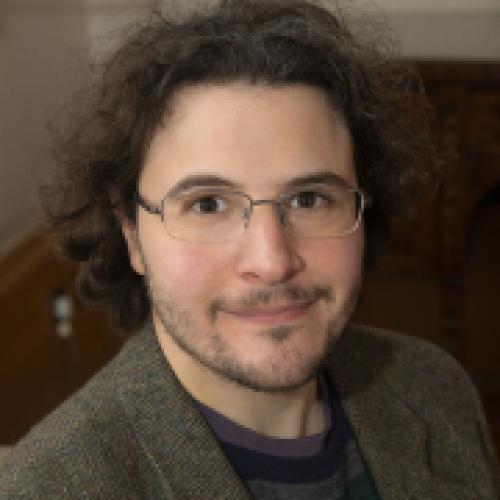
Dr Aurelio Carlucci
I completed my DPhil in Mathematics working in Algebraic Geometry under the supervision of Professor Balázs Szendrői. Before coming to Oxford, I graduated from Sapienza University in Rome, spent a year at UPMC in Paris, and then several months at the University of Warwick.
My research interests mainly concern the geometric problems arising from String Theory and High Energy Physics. In one of its flavours, String Theory predicts a 10-dimensional universe: 4 of them account for the ordinary space-time, while the remaining 6 are enveloped in a 3-dimensional complex geometric object, called a Calabi-Yau manifold.
Since there is an immense variety of Calabi-Yau manifolds, it is important to distinguish between them. One way to achieve this is to attach an invariant to each of them, so that different invariants will correspond to different manifolds. One approach is to count "how many smaller geometric objects" a manifold contains.
This is within the domain of an interesting field of study, called Enumerative Geometry. Roughly speaking, it deals with questions of the form: given an ambient space, how many geometric objects are there, satisfying certain conditions? In many cases, those questions are reduced to Intersection Theory: for example, given five general conics inside the complex projective plane, how many conics are tangent to all five?
Dr Aurelio Carlucci

I completed my DPhil in Mathematics working in Algebraic Geometry under the supervision of Professor Balázs Szendrői. Before coming to Oxford, I graduated from Sapienza University in Rome, spent a year at UPMC in Paris, and then several months at the University of Warwick.
My research interests mainly concern the geometric problems arising from String Theory and High Energy Physics. In one of its flavours, String Theory predicts a 10-dimensional universe: 4 of them account for the ordinary space-time, while the remaining 6 are enveloped in a 3-dimensional complex geometric object, called a Calabi-Yau manifold.
Since there is an immense variety of Calabi-Yau manifolds, it is important to distinguish between them. One way to achieve this is to attach an invariant to each of them, so that different invariants will correspond to different manifolds. One approach is to count "how many smaller geometric objects" a manifold contains.
This is within the domain of an interesting field of study, called Enumerative Geometry. Roughly speaking, it deals with questions of the form: given an ambient space, how many geometric objects are there, satisfying certain conditions? In many cases, those questions are reduced to Intersection Theory: for example, given five general conics inside the complex projective plane, how many conics are tangent to all five?